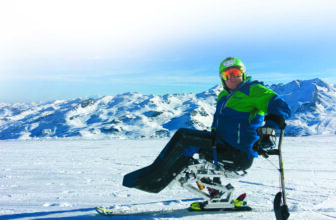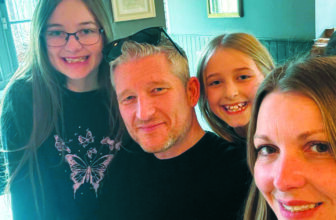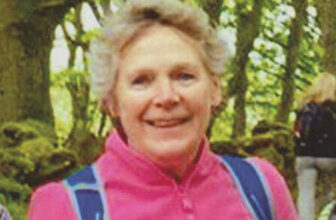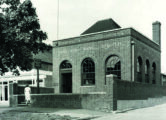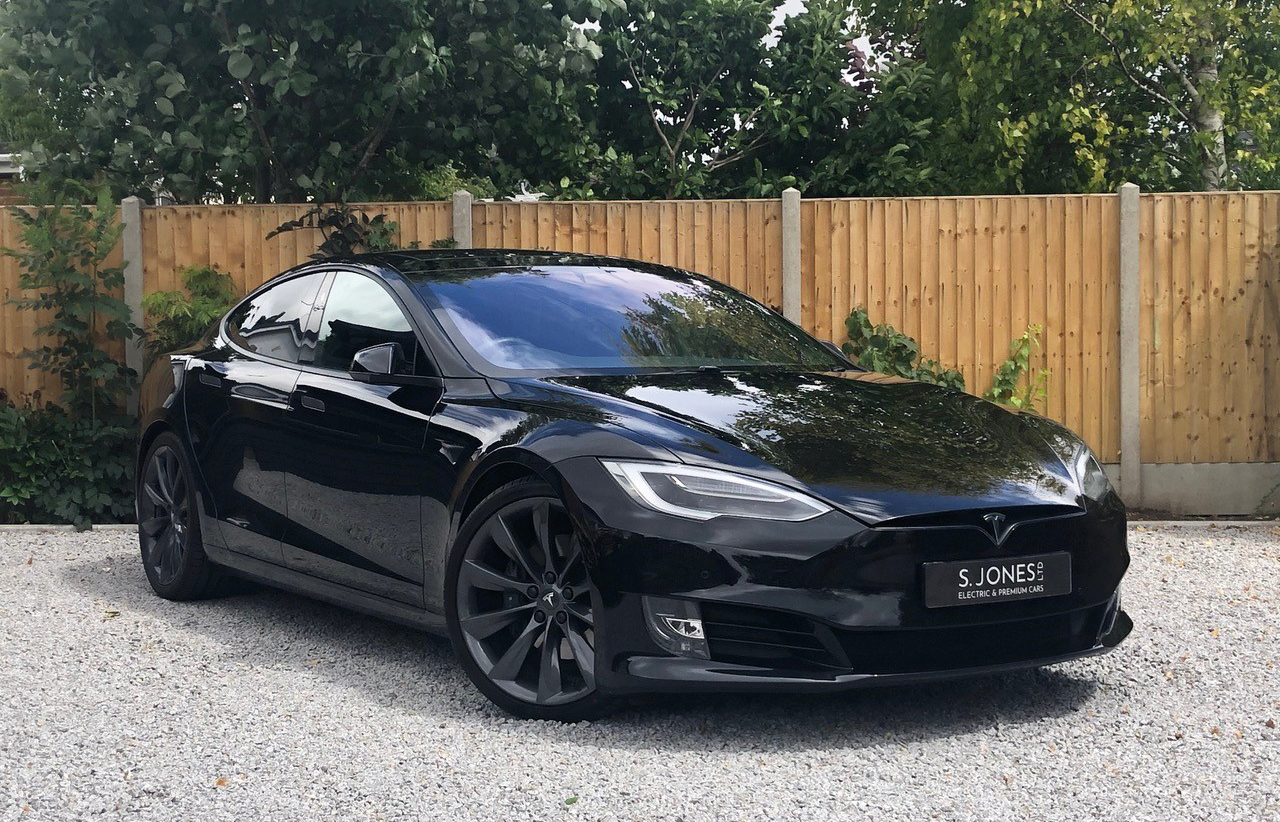
I was born in Dorchester in December 1984, the oldest of two brothers. My father originally came from Wrexham in North Wales, his first posting in the army was in Dorset, where he met my mother. They only knew each other for three months before getting married and they’re still happily married to this day.
Life was good growing up with a father in the army. Both parents encouraged me while I was at school, even though I found it difficult as I couldn’t concentrate in lessons. It was discovered that I had Attention Deficit Hyperactivity Disorder (ADHD) and was also Dyslexic. My coping mechanism was to fool around rather than focus on my school work. As a result I was always in trouble. I found the academic bits very difficult, I was much happier doing the physical activities and playing football with my mates, to the detriment of my school work. When I was in the classroom, I was always in trouble. I was never cruel to the other children, I was just disinterested in my school work which led to me being mischievous and inevitably being sent to the Headmaster. In one of the schools I attended there was an isolation box outside the Headmaster’s office, more often than not it was me who occupied it. That box became my classroom!
I was initially diagnosed with ADHD when I was about eight and prescribed medication called Ritalin. The main side effects of Ritalin were loss of appetite and drowsiness. I became very thin and was constantly exhausted. I felt so awful I decided not to take my tablets. I used to pretend I’d taken them. It wasn’t easy coping with ADHD at school. With my dad constantly on the move with the army, I had to change schools every two years. This was so disruptive that my parents thought it might be best to send me away to boarding school, which would hopefully give me more stability. Unfortunately, as I was so young, I became homesick and I ended up coming back home. I was sent to a British Army school in Germany for a few years, but again I quickly found myself getting into trouble and I was repeatedly sent to the Headmaster to be dealt with to the point where, just before my GCSE’s, I was expelled.

When I was 17 years old, I joined the British Army. My mum and dad were hugely sceptical, they joked that I’d only last two weeks and 16 years later realised it was the best thing that ever happened to me. Being in the Army didn’t change me at all. I was still the same, mischievous, fun loving, practical person. I found the joking around that would’ve had me thrown out of a lesson in school was completely accepted in the Army and I was known as a character by superiors. Morale is key and is a very good lift-up in bad situations, it’s healthy to laugh and have fun! There are times when it’s essential to be professional and be a solider, I quickly learnt that, and how to switch between the two. My ADHD gave me plenty of energy and the Army accepted me for who I was. I was promoted to Corporal and selected for Sergeant but tragically, never experienced the responsibility of that rank as I was badly injured on my ‘All Arms Commando Course’.
My role in the Army was as a Recovery Mechanic in the REME (Royal Electrical Mechanical Engineers) which in itself was a very physically demanding job. I was trained in coping with different situations and environments across the world. I became an expert in extracting armoured fighting vehicles, in peace-time or under fire. These were life-threatening situations where the infantry was in serious trouble, trapped in a firefight, pinned down because their vehicle was inoperative. I would be sent in at speed, to extract that vehicle. When I got there I had to rapidly assess the situation, formulate the best plan of action to get them out whilst keeping a cool head at all times. Ensuring my safety, but more importantly the safety of the other soldiers was paramount. I could be in cold climates such as in Norway, Germany, Poland, Falklands or the hotter climates like Iraq or Afghanistan. I worked on amphibious vehicles, armoured road vehicles and main battle tanks.
I joined my first unit in January 2004, in Germany, where I did a lot of my training. I had two years’ experience when I moved to the Princess of Wales Royal Regiment (1 PWRR). I went to Iraq in 2006, Op Telec 8, to a place called Alamarah. There we performed many strike operations, patrols, convoys collecting supplies, protecting the supply runs, making sure all the water, food and fuel got from A to B safely. We encountered roadside bombs. I’ve had rocket-propelled grenades (RPGs) fired at me and I’ve been in convoys hit by Improvised Explosive Devices (IEDs).
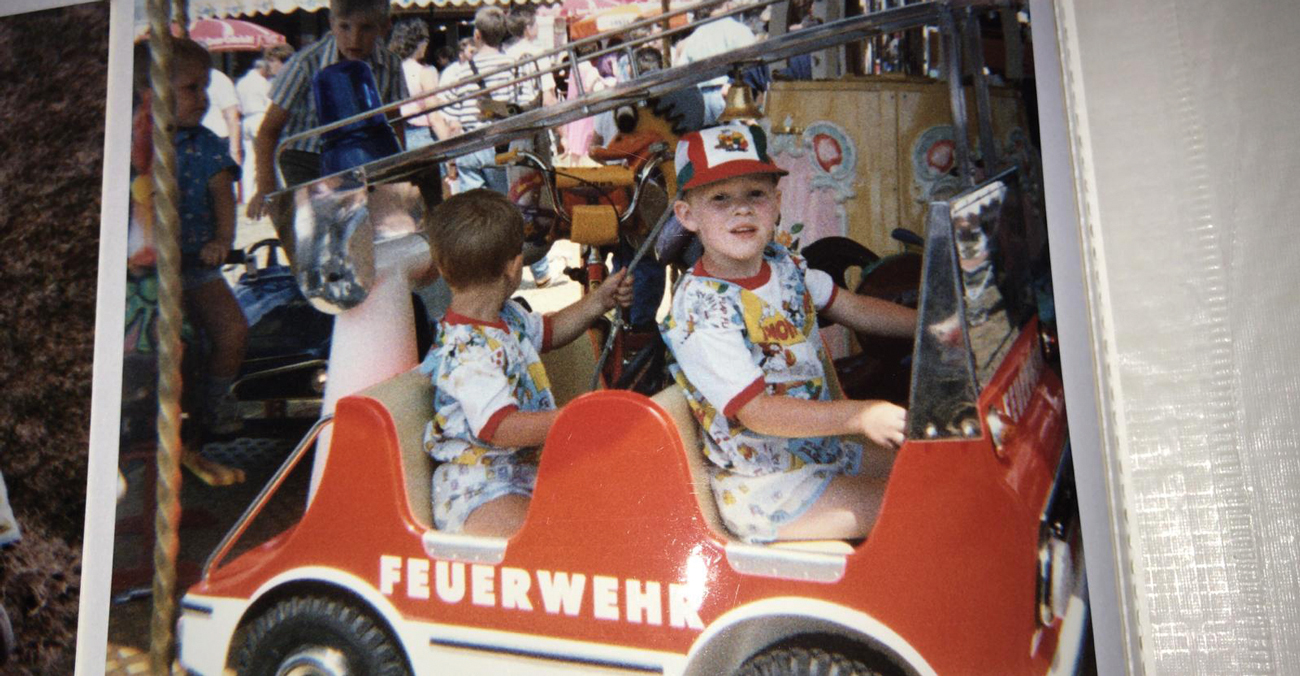
Me at the fairground aged 7, driving a fire engine – I loved to drive
I learned much from that time. Skills that I’ve kept with me throughout my life such as how to control yourself in high stress situations. Situations demanding clarity of thought and speed of action where a cool, calculating brain is the difference between life and death. These are the hugely valuable life-skills that the Army taught me.
One of my highlights in Iraq was when I was involved in a very big strike operation. Whilst on that tour, *Staff Sergeant Chris Lyndhurst was my boss, the Chief Recovery Mechanic who received a Military Cross from the Queen, when a Challenger 2 (main battle tank of the British Army) got ‘bogged in’. I was protecting the Challenger 2 with the Princess of Wales Regiment when we got a call over the radio for an immobilised Warrior armoured fighting vehicle. We were informed that one of its tracks had been damaged and that it was also ‘bogged in’. I was sent to extract the Warrior Tank and the infantry as they were pinned down by gunfire and mortars. I was working with my Commander, a Corporal, at the site and there was a bad firefight, with mortars landing all around us, exploding everywhere. He was in a position of authority but unfortunately, he got ‘shell shock’, which doesn’t discriminate over rank or file. He refused to get out of the tank because of the enemy fire. Seeing his response was quite distressing for me but that’s when the ‘fight or flight’ response kicked in. I had no choice but to take control. If he’d been out on the ground, he would have been a danger to himself and other soldiers, but by shutting him in and locking the back of the tank, I protected us both. He was safe, I knew where he was. I could then focus on protecting myself as I was under fire whilst extracting the armoured vehicle.
Meanwhile Staff Sergeant Lyndhurst had completed the task of recovering the Challenger 2. The Colonel of the Queen’s Royal Hussars was overseeing the complete operation also on the ground, from his tank. In the same location we were under enemy fire from all directions. The insurgents fired up flares, signalling to their ranks to get more reinforcements to the area within the hour.
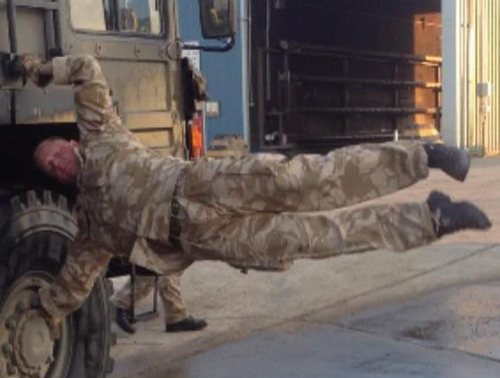
Me performing the ‘flagpole’ manoeuvre and keeping fit
Throughout this time the Infantry driver and I were putting chains onto the tank preparing to winch it out with enemy fire and mortars all around us. All the time I had the infantry protecting me, if any insurgents popped out, they were there to deal with them. Finally, I managed to get the tank free. It took three hours of hard work through the night to complete the task. When I got back to camp it really sank in how dangerous the task had been. When I’d joined the army I was very young and I had never experienced anything like this. It quickly made me aware just how badly situations can escalate.
Back in Germany after Iraq, I struggled getting back into normality. My Officer Commanding who had overseen the recovery operation, had notified me that I would be recommended for an award possibly a military cross, unfortunately the request never came through as he was taken off tour shortly after the task. I never felt that I got any recognition for the dangerous job I had completed. When no acknowledgement came through I reacted quite badly and I found myself rebelling towards the Army. Over time I decided to do my best and remain in the forces.
I was subsequently promoted and posted to 6th Battalion Royal Electrical and Mechanical Engineers (REME) in 2012 as a Corporal and I was selected to go on my Commando course. Completing this course would mean achieving Sergeant quicker. Unfortunately, while on patrol on the Commando course I broke my ankle. We were covering 20 miles a day over 3 days. On the last day as we patrolled through a valley, I went over on my ankle and it gave way. I needed medical attention straight away and I had two operations. I was given physiotherapy afterwards but full recovery was slow and it was suggested I might never reach full fitness and that I should leave the Army on a medical discharge.

Driving a Warrior 2 tank
I was devastated because, in the army, my ADHD had been accepted whereas I understood outside in ‘Civvy Street’ that might not be the case. I felt I had to persuade the medical officers otherwise. I told them that I had no more pain in my leg or injured ankle. I endured all the army’s physical tests, grinning and bearing the pain.
In 2013 I went on tour to Afghanistan. The body armour we were provided with in Iraq wasn’t nearly as good as it was in Afghanistan. It was completely different, the body armour we were issued was just a small plate on the front and back of your body, which covered the heart, but left the lungs, kidneys and everything else exposed. I had a really good tour in Kandahar, Afghanistan with the infantry. It was good to work alongside the Special Forces, it was nowhere near as tough a tour as it had been in Iraq in 2006. After that tour I came home and I took some leave, three months in all. I wanted to be proactive and I wondered what could I do with my time.
I began to clear out my house, selling things on Gumtree that I no longer needed. I noticed there were certain unwanted items in my house that sold very quickly. Items like my fridge/freezer, washing machine and tumble dryer. After seeing how quickly these sold, I went on to buy those same items from Gumtree, giving them a clean and then I resold them to make extra money. I found that buying and selling occupied my time very effectively and satisfyingly.
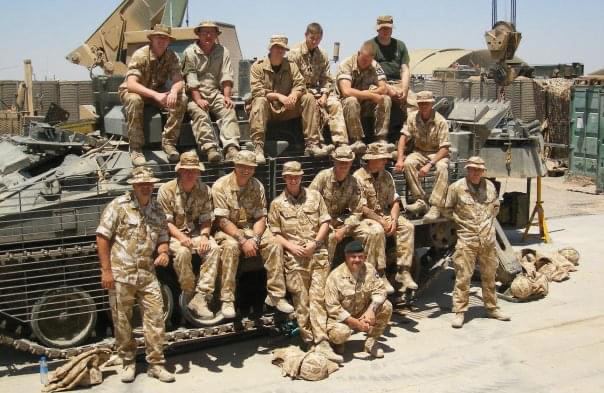
My mates and I having a light hearted moment
In 2014 I was posted to the Falklands and while I was there, I decided to learn PDR (Paintless Dent Removal) because I thought that my time in the army was probably limited and that this would be a valuable skill to acquire. I found it more and more difficult to keep up, army-wise, with my injury. As much as I wanted to keep going, I’d had my initial injury at the end of 2011 and was in Afghan in 2013, and the Falklands in 2014. My ankle wasn’t improving and my body was telling me that I needed to stop. I was worried I would suffer permanent injury.
In anticipation of doing the PDR in the Falklands, I went to a scrapyard before I left and unbolted a door from an old Mini. I flew the door and my tools out with me to the Falklands. All my fellow soldiers thought it was hilarious and enquired when I got off the plane “What’s that? Is it a telly you’ve brought, why have you brought a car door?” I told my friends I’ve become a dent man. What I would do was to put a little dent in the door then try and take the dent out, then another and another. By continually repeating this process I became quite proficient at it. When I finished the 6 months in the Falklands, it felt like the best tour I’d ever been on. Friends I’d made on this tour helped me face the future and make some difficult decisions. I would need to restart my career.
When I returned from the Falklands I had some MRI scans on my leg which indicated I needed another operation. I returned to the UK at the end of 2014 and went to rehabilitation but finally I was given a medical discharge from the Army.
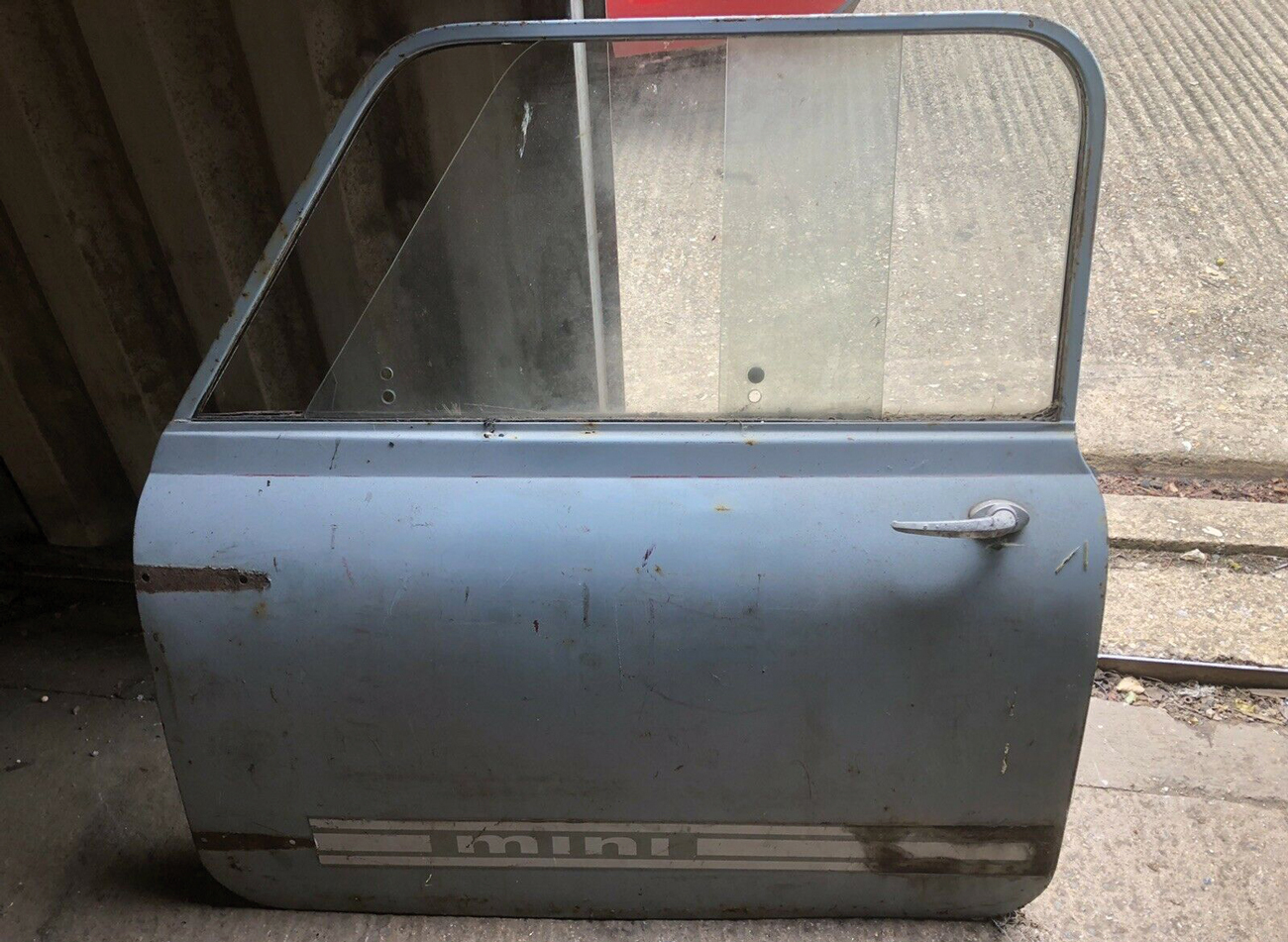
A Mini door similar to the one I worked on
Being in the Army was a fantastic time for me and set me on a good course, it was 16 amazing years of my life. When you leave school to go into the Army you essentially leave your mum, who’s done everything for you. She cooks, washes, cleans and tidies your room. When I joined the Army, I quickly had to learn to fend for myself. The Army is more like a second family as they provide a roof over your head and basic necessities to help you to be independent, teaching me all the skills I needed to learn. When in training, the instructors in the Army have been in the same position so they can relate to where you are and help develop you, teaching you all the skills you need to know. The Army is very much like a pack of dogs, you live together, you train together and you would put your life on the line if needed. There’s a strong sense of loyalty and trust between each other, which really helped me to open up and be myself. The friends I made in the Army were drawn to it by being very practical and enjoyed working in a team. The Army was very good at noticing my weak points and enrolling me on courses to help improve and develop me academically.
I had to do a couple of things to progress through the ranks, I had to re-do my exams as I didn’t have many GCSE’s from when I left school. Once back in the classroom I still found my ADHD hard to control. The whole classroom to me was like being in a comedy club it was so funny even the tutor was laughing too. Eventually, I was removed from class and I quickly found myself being isolated. I felt like I was reliving my school days all over again!
Having received my medical discharge I was now out in ‘Civvy Street’. Scary as this was, I decided to use some savings I’d banked while in the Falklands to start a new venture. I purchased a nice car, I intended buying and selling the car in the same way I’d bought and sold the fridge/freezers a few years earlier. I discovered it was an easier process with a car. Fridge/freezers have to be collected, driven home, lifted into the house, cleaned, sold, then taken to the new purchaser’s house. The experience with a car was far better.
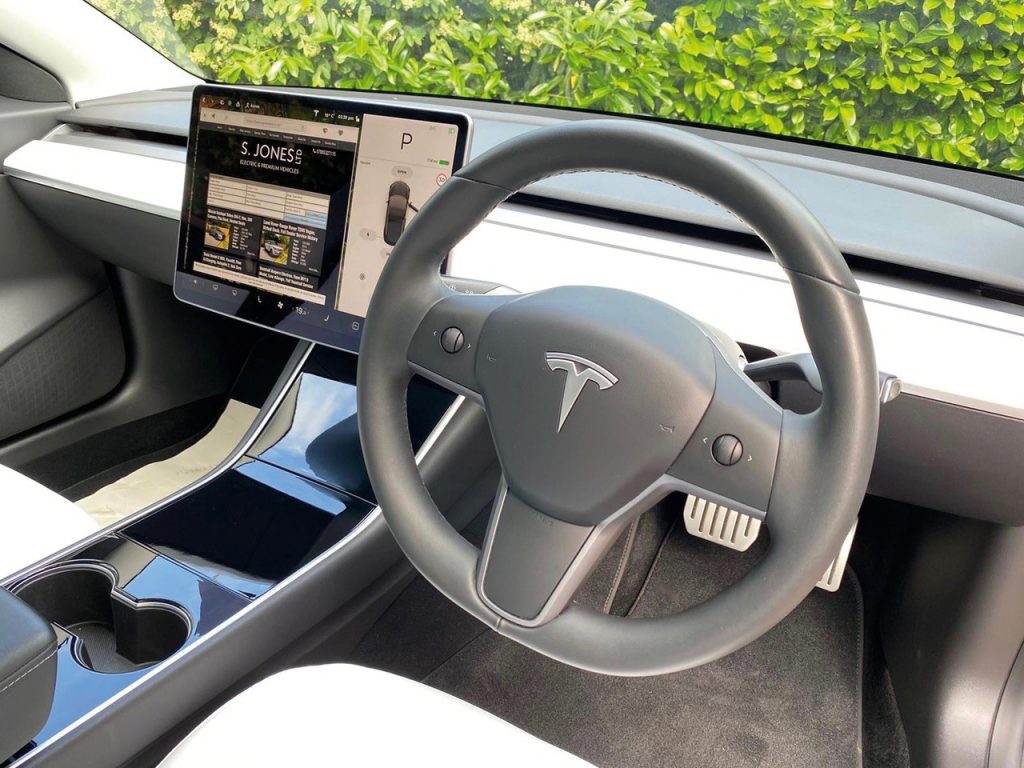
I’d see the car advertised, go to the seller’s house, meet them, look at their car and have a social interaction, I enjoyed talking to the customer and bartering. They want to sell the car, they’re nice, you’re nice, it’s a nice experience. You buy the car, take it away and prep the vehicle for resale. I liked the challenge and it kept me busy. The vehicles I hand-picked were the best examples of their kind. It was as I got involved in car sales that I met my friend Richard.
Richard already had the platform of sales; I’d come out of the Army and was very driven. I already knew a great deal about vehicle mechanics because of my Army work. I knew how to do those checks, add to that integrity and loyalty, do the job right, don’t cut corners and you will succeed. If you’re a likeable person, you can have a laugh and enjoy the process. The paperwork side of it doesn’t come naturally to me at all, I find that the most challenging part.
Once I’d come out of the Army Richard and I became business partners. Initially we just dealt in normal cars, which if they broke down we had to repair. The clutches would go, the DPF (Diesel Particulate Filters) would bung up, all very costly items. So we drew up a spider diagram and wondered what could we do differently. We thought of many potential ideas – each time we came back to cars.
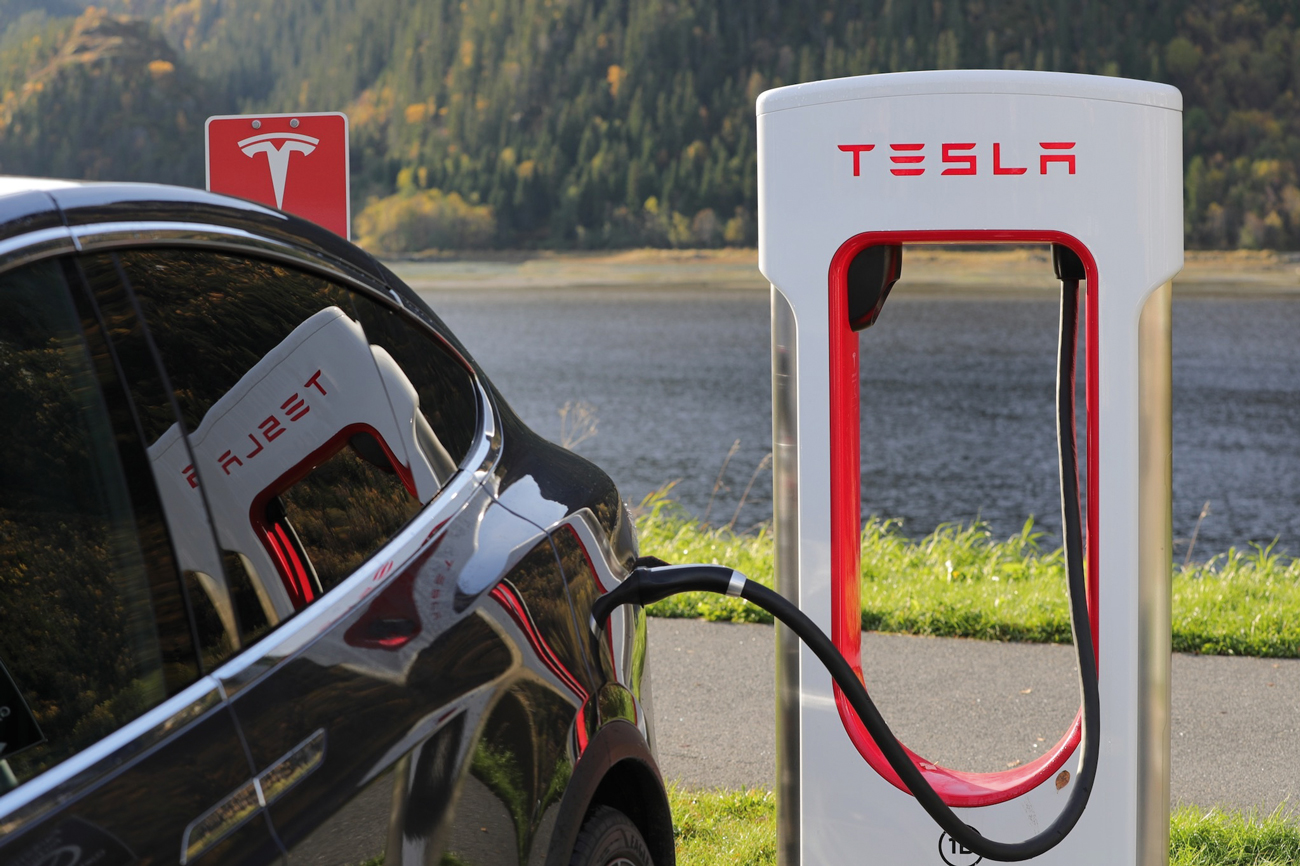
Richard spent his money on a Tesla car and bought it outright, and my experience with cars changed dramatically. The Tesla was very reliable, comfortable, and had high tech features, as well as being environmentally friendly. Everything it should be but not what you’d expect of a normal car. It has a built-in ipad-like feature as its main display screen, with Spotify, Google Maps which pretty much controls the entire car with suspension settings and in their latest released Tesla model 3 Performance having an option called “Track Mode”; custom modes with adjustments for stability control and drive train, as well as a being able to use the Dash Cam to record your hottest laps! Tesla are on a completely different page to the rest of the market. Once we realised this, it opened up both of our lives to a new experience in cars. We discovered the extent of the electric car market – electric cars, hybrids and plug-in hybrids, far more reliable than regular cars.
We agreed to run our business in a more personal way. We were quickly known for providing a service for SOR (Sale or Return). For example, a business man who’s in meetings all day, doesn’t want to be handling the sale of his vehicle while at work. We found that people prefer someone they could trust to handle the sale, in much the same way an Estate Agent sells a house. This service we provide has the advantage of getting more money for the vehicle than if it were part exchanged or sold privately. We would prep and detail the cars to the highest standard and present them on our platform. Once sold, the vendor had the money in his bank less our sales commission, with this service quickly becoming a large part of the business!
Richard is more academic and I’m more ‘hands on’ and this made us a great team as we would use each others strengths to our advantage. Richard was the face of the company, ‘R Symons Ltd’ and we quickly became well known in the Tesla owner’s groups on Facebook. I focused on the practical side and remained behind the scenes, buying, bartering, getting stock in and selling, that was my forté. When the vehicles were ready for sale I enjoyed taking the photographs, ensuring the presentation was to the highest possible standard. ‘A picture is worth a thousand words’.

We made a good name for ourselves; we would visit local hospitals. On one occasion Richard and I donated a little electric Tesla car to the children’s ward. I presented the little Tesla to Dorchester Hospital (which is where I was born, which was a nice touch for me personally). The children could drive it down the hospital hall when going off for an operation or appointment. This would help relieve the worry and pressure for them by focussing on something else. It was a lovely experience for them and I felt it was an amazing thing to do for the children. I was glad to give something back.
In January this year Richard and I decided to part ways from being business partners. Change isn’t a bad thing. I have accepted the challenge and have found my feet fast! I’m doing very well despite COVID-19, selling electric vehicles for owners and sourcing handpicked examples for customers. I have now set up my own company S L Jones Ltd, (trading as S. Jones Ltd) situated in Bournemouth Dorset www.sjonesltd.co.uk.
With the design of an electric car, Tesla needed to think outside the box, so not only did they manufacture a very capable car, but they also have an efficient supercharging network across the world. If you think of BMW, they’re a very good car manufacturer but if they owned Shell or BP, it would be a far more powerful company. Tesla outsmarted all the other manufacturers right under their noses by putting Tesla only, electric charging stations all across Europe and America, establishing them quickly and making them a leader in the electric car market. Tesla’s Model S Sedans and Model X SUVs, up to January 2017, all come with free, unlimited access to its network of electric vehicle chargers known as superchargers. But be careful, if a car has been traded back to Tesla, they will remove the free supercharging from their older models and resell them into the market! How can people be so set on diesel and petrol when it’s all there in one package? The Tesla Model 3, has been on sale in the UK for a year now and has quickly established itself, with the performance model being one of the most wanted vehicles available right now. The instant torque in Tesla electric cars is amazing, 5-star safety ncap rating and Auto Trader 2020 Best-selling Car. I have owned many different variants of Tesla over the years; a particular favourite of mine being a Model S P85+ Signature. I would highly recommend owning one. I currently own a new Tesla model 3 performance which is incredible value for money. Its new onboard tech really appeals to me with faster charging at superchargers than the older models!
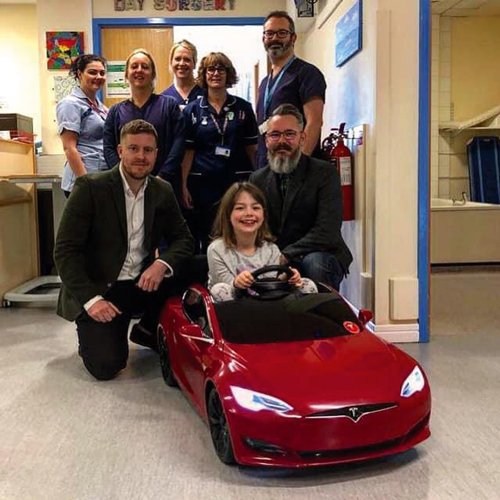
Myself and Jo, our salesman, presenting the electric car at Dorchester Childrens Hospital
So with COVID bringing the world to a halt, people are rethinking what they are going to buy and re-evaluating their lives and lifestyle. Now is the right time to get an electric car!
At the moment people are looking for alternative travel arrangements. I’ve noticed this personally. I don’t want to go on a train or bus if I can help it, I don’t want to potentially put myself and my family in danger of infection, so what will I do? I’m going to travel in the safety of my own vehicle and if I haven’t got a car, I’ll buy one. Tesla have the added feature in their premium interior package, a bio weapon defence mode – it’s as if they knew this would happen!
What car is best at the minute? Certainly not diesel. If you can’t afford an Electric car, I’d recommend a Petrol Plug-In Hybrid. Some that I know very well are the Vauxhall Ampera, Golf GTE, or the Audi A3 E-tron.
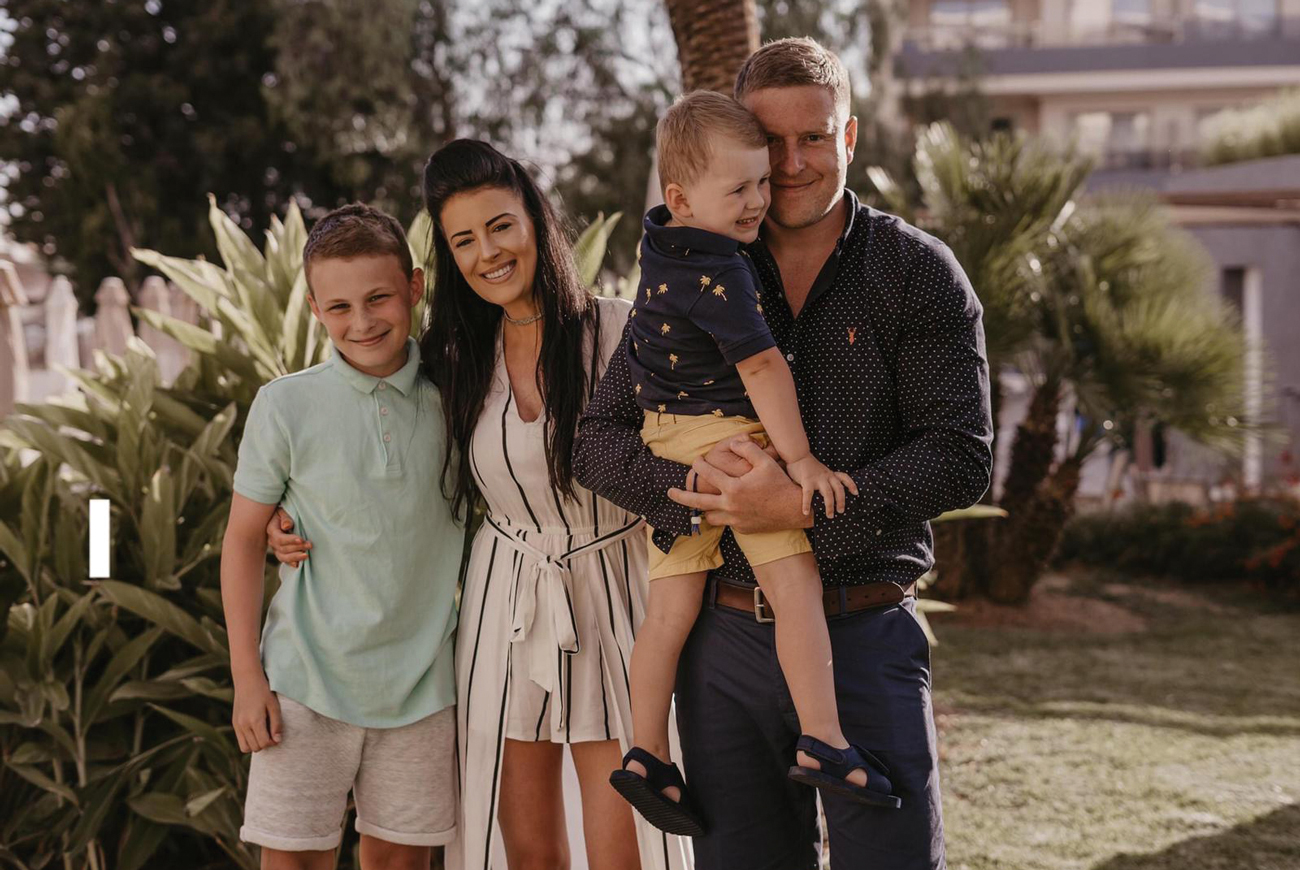
My beautiful fiance and my two boys
Once electric cars support the trades that rely on diesel and petrol engines, that’ll be it! It will be excellent for the future and most importantly the environment. I’m making this change for my family, for the world they’ll grow up in, and the sooner the better.
Simon Jones, August 2020
For more information contact Simon on
www.sjonesltd.co.uk or 07885 327 115

*24817926 Staff Sergeant Christopher Brian Lyndhurst, Corps of Royal Electrical and Mechanical Engineers was awarded the Military Cross Medal in 2014
Chris Lyndhurst (MC), worked in the dark for 10 hours while under fire from insurgents. The task was difficult as the tank had thrown both tracks. It was done whilst under fire from small arms, rocket-propelled grenades and mortars.



